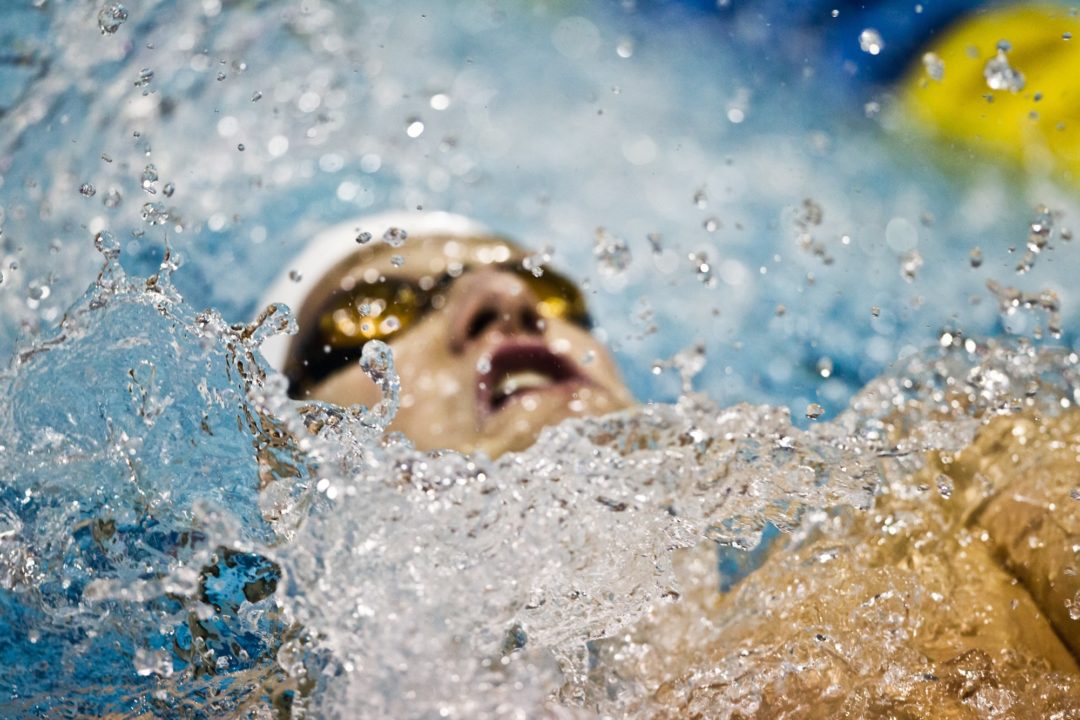Thanks to Agustín Artiles Grijalba for contributing this story:
Under certain circumstances and in certain situations, the athletic aspirations that some swimmers may have are almost entirely dashed. They raise their hands to the sky and ask why oh why do the results they had hoped for elude them so, without fairly judging whether they genuinely made the necessary effort to achieve them or focused sufficiently on their training.
Below is a list of some of their most common mistakes:
- Thinking that everything is done
- Underestimating the competition
- Abandoning targets after a poor performance
- Letting study slide and leaving exam preparation for the day before
- Overestimating your own individual talent and trusting too much in good luck
- Leaving everything for the last minute
- Seeking senseless excuses after a poor performance
- Blaming poor results on your immediate surroundings
- Faking an injury or illness when everything gets too much
- Setting targets that are too high or impossible to achieve
- Failing to attend training sessions
- Not looking after your diet, not recovering properly, going to bed late and not sleeping enough to enable optimum athletic performance and health
- Having a negative attitude
- Not taking risks in certain situations
- Failing to make the most of your abilities
- Lack of humility
- Avoiding dialogue with your coach when you disagree with something and then complaining behind their back
- Believing you have to get good results in every competition and feeling bad, breaking down into tears and losing hope if you don’t, without realising there are ups and downs in all training processes, that you need to persevere and that even the best swimmers in the world make mistakes and perform poorly sometimes
- Always having your mobile nearby while training
- Doing things that can often lead to injury
- Not knowing where your targets are leading you
- Not warming up properly before a competition and failing to take care of the small details
- Being unable to combine study and training when necessary
There are countless reasons for these mistakes, some of which I list below. For the most part, they can be avoided or their effects reduced.
REASONS
- Through a lack of awareness in the swimmer, they fail to stop and think about the possible consequences of certain decisions
- Inadequate or a complete lack of information from the coach, who was incapable of properly warning or advising the athlete
- Lack of interest
- Lack of respect for rivals
- Inability to accept responsibilities
- Laziness
- Lack of foresight
- Fear of ridicule
- Narrow-mindedness
- Carelessness
- Insecurity
- Lack of self-analysis
- Arrogance
- Low self-esteem
- Lack of values
Foreseeing or offsetting their consequences as much as possible should be included among the main objectives of our programme. This will enable us to avoid unexpected results and inappropriate attitudes in the athlete.
About Agustín Artiles Grijalba –Champi-
 Agustín Artiles GrijalbaAgustín has more than 35 years of experience as the Head Coach of some of the most important Spanish swimming teams
Agustín Artiles GrijalbaAgustín has more than 35 years of experience as the Head Coach of some of the most important Spanish swimming teams
He has been the Coach of the Spanish Swimming Team from 2008 to 2012, and has trained the 50 breastroke Spanish national recordman, Hector Monteagudo Espinosa, from 2002 to 2013
Agustín has also trained several international swimmers from the Spanish National Team and from the european and world top ten, as well as paraolimpics athletes with medals and world records in all the different categories.
He has also been accomplished with the award as the Best competition swimming coach in Spain 2006, as several recognition for professional merits.

While I find this article very interesting, I do have a couple of questions. I am currently conducting a research study that will tackle this very issue– the motivation, or lack thereof, of swimmers, and their reasons why. While I do believe Agustin has some very solid points, that I am sure many coaches can agree upon, how did he come to these reasons? Are these observations made over the years, conversations had with swimmers? What about pressures put upon them by parents? I am asking these questions out of pure curiosity since the answers may help with how I conduct this study and what specific questions to ask. Thanks!
This article would be much more useful and insightful if the author fleshed out the bullet points and actually provided commentary or solutions… as is, it sounds like a coach having a bad day and ranting about his swimmers.
Nailed it!